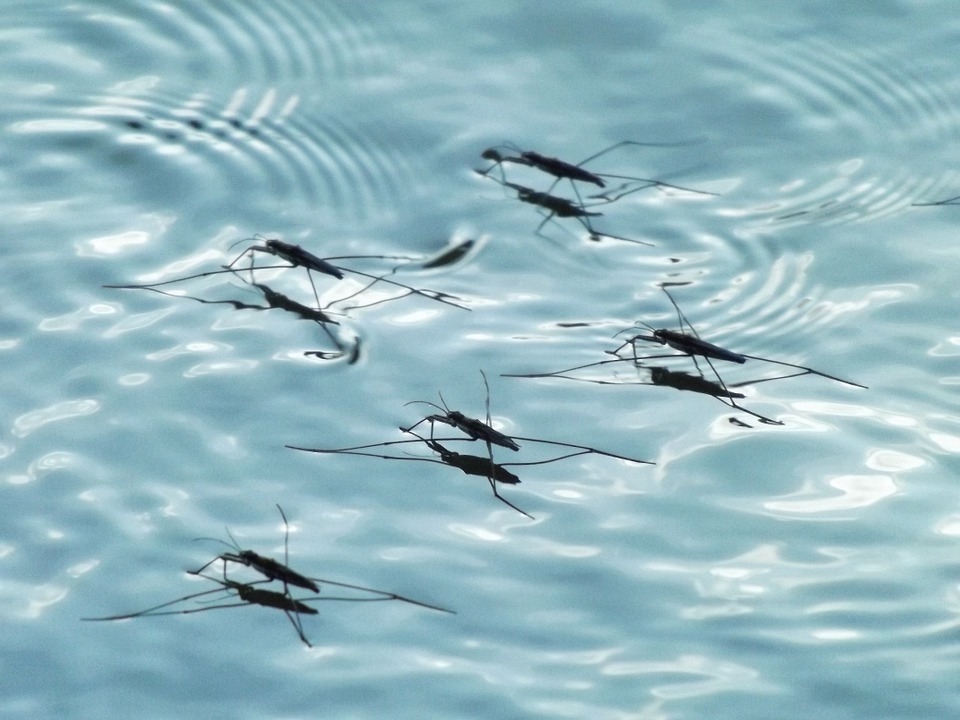Pueblo and Larimer Counties confirm mosquitoes test positive for the virus—the first two in the state for 2019.
It’s mosquito season, and the winged pests are out and about all over Colorado. Mosquitos carry the West Nile virus, usually from eating infected birds. The disease has been detected in more than 100 kinds of birds, as well as mammals, like dogs, cats, horses, and more. The virus has been detected in the United States since 1999 and the first case recorded here in Colorado was in 2002.
West Nile is a virus that can overwinter, meaning it can survive in mosquitos during the winter months in North America. The riskiest months for humans runs from June to early September, according to the Colorado Department of Public Health and Environment. This year’s West Nile season is delayed in Colorado due to a very cool wet spring and early summer. So delayed, in fact, that the first cases of West Nile in the state were detected just last week in mosquitos found in Pueblo.
The Pueblo Department of Public Health and Environment (PDPHE) announced on Thursday, July 25, that the first mosquitos in the state in 2019 had tested positive for West Nile. On Tuesday, July 30, health officials found mosquitos in Larimer County that tested positive for the virus, in both Loveland and in Fort Collins.
So far, no confirmed human cases of West Nile have been confirmed in Colorado. Back in 2018, around 100 people were confirmed to have the virus, and two people died.
The PDPHE says that most people infected with West Nile will not feel any symptoms, and the risk of being bitten by an infected mosquito is higher for those work outside or spend a lot of time doing outdoor activities. People of any age can get West Nile, though those with other serious health conditions or compromised immune systems are at a higher risk.
Symptoms usually manifest two to four days from a mosquito bite and include fever, headache, and body aches. A skin rash on the trunk of the body and swollen lymph glands can occur in some cases. Some patients, however, will develop severe symptoms of the virus; encephalitis, meningitis, headache, high fever, stiffness in the neck, disorientation, stupor, tremors, convulsions, coma, muscle weakness, and paralysis. According to Colorado State University research, about one in 150 people infected with West Nile will experience these more severe symptoms.
When outside this summer and fall it is a good idea to protect yourself from mosquitos and there are several methods out there. Insecticides are very effective, though they are only effective short term and pose other health risks with extended use. Repairing ripped or broken screens, wearing long socks, pants, shoes, and long-sleeved shirts when outside for long periods of time, using a repellant with DEET, and reducing standing water around your home are all recommended methods, as well as saying inside at dawn and dusk when mosquitos are most active.

Courtesy of Pixabay
The PDPHE recommends that people follow the "Four D’s" to keep themselves, friends, family, and pets protected from mosquitos:
DRAIN: Eliminate standing water in pools, ponds, tires, or similar water-holding containers as these may serve as mosquito breeding sites. Change the water in pet dishes, birdbaths, and flower pots, weekly.
DUSK AND DAWN: Avoid outdoor activities, such as gardening, at dusk and dawn when mosquitoes are most active.
DEET: Picaridin, IR3535, and oil of lemon eucalyptus are also effective ingredients to look for in insect repellents. Always follow label instructions for application.
DRESS: If outside during periods when mosquitoes are most active, cover up by wearing long-sleeved shirts, pants, shoes, and socks.
More information about West Nile is available here.
We want to get out there and enjoy Colorado’s great big backyard, but safety should always be a top priority and that includes educating and protecting yourself and others from mosquitos. Though they may be small, and right now, the virus has only been confirmed in two counties in the state, it is likely more infected mosquitos will be seen across Colorado as the summer months wind down.
Did you know about the West Nile virus being in Colorado for so many years? Do you have any tricks or tips on how to stay healthy and keep mosquitos away that we didn’t mention? Share with us in the comments, and stay safe out there, Colorado!
